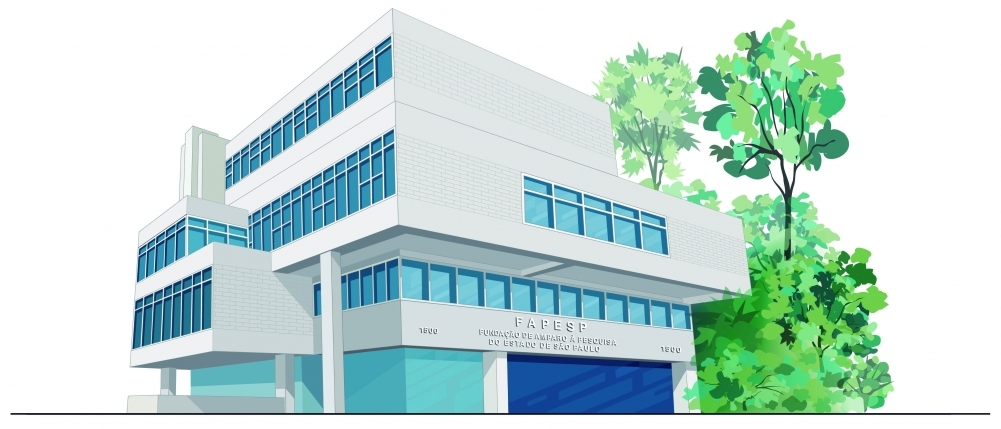

The new RIDCs will conduct research on biodiversity and climate change, antimicrobial resistance, the biology of bacteria and bacteriophages, theranostic medicine against cancer, and tropical agriculture’s carbon footprint (illustration: Sirio Cançado/Agência FAPESP)
The new RIDCs will conduct research on biodiversity and climate change, antimicrobial resistance, the biology of bacteria and bacteriophages, theranostic medicine against cancer, and tropical agriculture’s carbon footprint.
The new RIDCs will conduct research on biodiversity and climate change, antimicrobial resistance, the biology of bacteria and bacteriophages, theranostic medicine against cancer, and tropical agriculture’s carbon footprint.

The new RIDCs will conduct research on biodiversity and climate change, antimicrobial resistance, the biology of bacteria and bacteriophages, theranostic medicine against cancer, and tropical agriculture’s carbon footprint (illustration: Sirio Cançado/Agência FAPESP)
Agência FAPESP – Five new Research, Innovation and Dissemination Centers (RIDCs) announced on March 29 will be supported by FAPESP for an initial period of five years, renewable for two further periods of three years. They were selected from 38 proposals submitted under a call issued in 2021 for projects in health, biological, agricultural and veterinary sciences.
The Federal University of São Paulo (UNIFESP) will host an RIDC dedicated to studying the question of antimicrobial resistance, which compromises the effectiveness of prevention and treatment of a growing number of infections by viruses, bacteria, fungi and parasites. The principal investigator (PI) will be Arnaldo Colombo, a professor at the university’s medical school (Escola Paulista de Medicina, EPM).
A center hosted by the University of São Paulo’s Luiz de Queiroz College of Agriculture (ESALQ-USP) will conduct research on carbon in tropical agriculture. The PI will be Carlos Eduardo Cerri, a professor of soil science at ESALQ-USP.
An RIDC hosted by the Blood Center of the State University of Campinas (UNICAMP) will focus on innovating in an area of medicine known as theranostics, which involves using nanotechnology to diagnose and treat cancer. The PI will be Carmino Antonio de Souza, a professor of clinical medicine at the School of Medical Sciences (FCM-UNICAMP).
A center hosted by São Paulo State University’s Rio Claro Institute of Biosciences (IBRC-UNESP) will conduct research on the dynamics of biodiversity in the context of climate change. The PI will be Leonor Patricia Morellato, a professor of phenology at IBRC-UNESP.
And a center hosted by the University of São Paulo’s Institute of Chemistry (IQ-USP) will focus on the biology of bacteria and bacteriophages, with Professor Shaker Chuck Farah as PI.
“These five proposals were unanimously approved by an invited panel of experts. Their selection was ratified by FAPESP’s Executive Board and Board of Trustees. However, all the proposals submitted were excellent and certainly represent future opportunities. We’ll issue another call for proposals in this same knowledge area within two years, and the research groups whose proposals weren’t selected in this round will have a chance to submit a duly revised project,” said Luiz Eugênio de Mello, FAPESP’s Scientific Director.
More diversity
Established by FAPESP in 1998, the RIDC Program funds research projects that address transformative questions regarding current knowledge and whose results can have positive impacts for society. RIDCs are expected to conduct ambitious and excellent research on relevant themes in their respective knowledge areas. The program strives to gather scientists around areas of fundamental research or application-oriented projects, with the goal of enabling them to form world-class research centers.
The first call for RIDCs in 2000 contracted 11 centers in all knowledge areas. A second call for proposals led to contracts for the currently existing 17 RIDCs, which have been operating since 2013. In 2021, FAPESP issued a new undertaking to organize annual calls for proposals in the following knowledge areas: health, biological, agricultural and veterinary sciences (in 2021); human and social sciences, architecture and urbanism, economics and administration (in 2022); exact sciences, earth sciences and engineering (in 2023).
The 2021 RIDC call received 38 proposals, which were reviewed by more than 140 Brazilian and foreign experts, in accordance with the procedure stipulated in the call. Five projects were approved, for a 13% success rate, in the most competitive process since the program’s inception.
“The new RIDCs represent an increase in diversity of research areas and host institutions, which is a positive development,” said Roberto Marcondes, who heads the steering committee for the RIDC Program.
Approved projects:
2021/10599-3
RIDC: Antimicrobial Resistance Institute of São Paulo (Aries Project)
PI: Arnaldo Lopes Colombo (EPM-UNIFESP)
2021/10573-4
RIDC: Center for Carbon Research in Tropical Agriculture (CCARBON)
PI: Carlos Eduardo Pellegrino Cerri (ESALQ-USP)
2021/10265-8
RIDC: Cancer Theranostics Innovation Center (CancerThera)
PI: Carmino Antonio de Souza (Blood Center-UNICAMP)
2021/10639-5
RIDC: Center for Research on Biodiversity Dynamics and Climate Change
PI: Leonor Patricia Cerdeira Morellato (IBRC-UNESP)
2021/10577-0
RIDC: Biology of Bacteria and Bacteriophages Research Center
PI: Shaker Chuck Farah (IQ-USP)
Republish
The Agency FAPESP licenses news via Creative Commons (CC-BY-NC-ND) so that they can be republished free of charge and in a simple way by other digital or printed vehicles. Agência FAPESP must be credited as the source of the content being republished and the name of the reporter (if any) must be attributed. Using the HMTL button below allows compliance with these rules, detailed in Digital Republishing Policy FAPESP.





